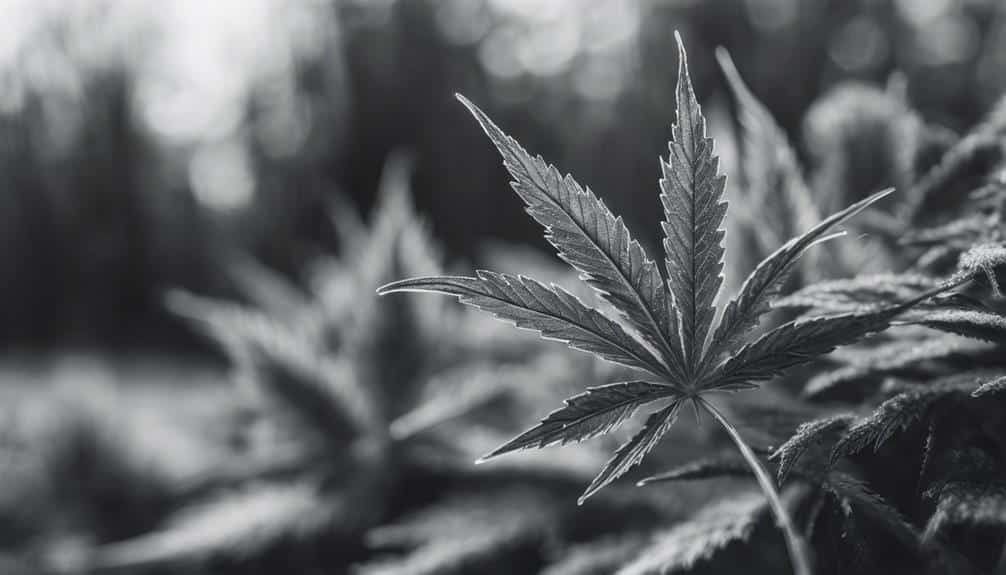Did you know that approximately 5% of U.S adults suffer from Seasonal Affective Disorder (SAD)? This significant number of people grapple with this mood disorder annually. Interestingly, Delaware is a progressive state where cannabis has been decriminalized. Some residents are resorting to cannabis for relief from SAD symptoms. But can this plant genuinely provide help? We will investigate this question by examining the science, laws, and personal stories surrounding this fascinating topic. Stay tuned as there’s much to learn.
Table of Contents
Understanding Seasonal Affective Disorder

Let’s delve into understanding Seasonal Affective Disorder (SAD), a type of depression that typically occurs during the change of seasons, particularly in fall and winter months. As someone passionate about helping others, it’s crucial to comprehend the complexity of this disorder to offer effective aid.
SAD symptoms can be debilitating, causing a significant shift in mood, energy, and concentration levels. People suffering from SAD often experience feelings of hopelessness, loss of interest in previously enjoyed activities, difficulty sleeping, changes in appetite and in severe cases even suicidal thoughts. These symptoms can lead to serious disruptions in daily life affecting work performance, social relationships and overall quality of life.
Treatment options are diverse ranging from light therapy and psychotherapy to medication. It’s important to note that each individual responds differently, so understanding the unique needs of those affected by SAD is crucial. Light therapy, for instance, involves exposure to artificial light that mimics natural outdoor light and appears to cause a change in brain chemicals linked to mood. Psychotherapy helps individuals identify and change negative thoughts and behaviors that may be exacerbating their condition.
Your role in understanding and addressing SAD is pivotal in helping those affected.
Cannabis: The Science of Relief
Turning to the burgeoning field of cannabis research, compelling evidence suggests this plant may offer a novel approach to alleviating the symptoms of Seasonal Affective Disorder. At the heart of these potential benefits are the plant’s cannabinoid components, unique compounds that interact with your body’s endocannabinoid system.
This system plays a key role in regulating mood and emotions, with imbalances within it linked to various mood disorders. The two primary cannabinoids, THC and CBD can mimic the body’s natural endocannabinoids helping restore balance and offering potential therapeutic benefits.
THC is known for its psychoactive effects but also has properties that can help reduce anxiety and improve sleep – two common issues for those with Seasonal Affective Disorder. CBD has been shown to have antidepressant and anti-anxiety effects without causing psychoactive side effects.
These cannabinoid components each have unique effects but work synergistically in what’s known as the ‘entourage effect’. This suggests that the therapeutic benefits of cannabis are most effective when using the whole plant rather than isolated components.
Legal Status of Cannabis in Delaware

In Delaware, the legal status of cannabis is progressive, allowing both medical and adult-use. This forward-thinking approach is a result of evolving Cannabis Legislation reflecting the growing acceptance of cannabis as a valid therapeutic option.
The Delaware Decriminalization Act, passed in 2015, ensures that personal use of cannabis doesn’t lead to severe penalties. Possession of up to one ounce is considered a civil violation rather than a criminal offense reducing the penalty to a modest fine instead of jail time.
Importantly, Delaware stands out for its comprehensive medical marijuana program. Doctors can recommend cannabis for a wide range of qualifying conditions including chronic pain, epilepsy and yes even Seasonal Affective Disorder.
However it’s important to note the limitations. While adults aged 21 and over can use cannabis there’s still no provision for recreational sales. The state allows home cultivation for medical patients only with strict guidelines ensuring safety and compliance.
Personal Testimonies: Cannabis and SAD
Numerous individuals in Delaware have shared their personal experiences underscoring the potential benefits of cannabis for managing symptoms of Seasonal Affective Disorder (SAD). These patient experiences suggest that specific strains of cannabis can significantly alleviate distressing signs associated with this disorder.
To better understand this let’s consider the following testimonies:
- Jane, who has long suffered from SAD expressed that using Sativa-dominant strains during the day helped uplift her mood and energy levels while Indica strains at night promoted restful sleep.
- Similarly Mike another patient reported that high-CBD strains provided calming effects reducing his anxiety and stress related to SAD.
- Lastly Lisa found relief from her depressive symptoms through a balanced hybrid strain underscoring the importance of strain differences in managing SAD symptoms effectively.
These testimonials suggest that cannabis may hold potential as an alternative or complementary treatment for SAD. However it’s crucial to remember that these are individual experiences not definitive scientific proof. While these personal accounts provide valuable insights further research is necessary to fully understand the potential benefits and risks of using cannabis in treating SAD.
Considerations Before Using Cannabis

Before considering the use of cannabis for SAD it’s essential to weigh the potential benefits against possible risks and consider various factors influencing its efficacy and safety.
Dosage recommendations for cannabis use aren’t one-size-fits-all. Depending on your individual tolerance body weight and severity of your symptoms optimal dosage can vary significantly. Thus it’s recommended to start with a low dose and gradually increase it as your body acclimatizes to the effects.
You should also be aware of potential side effects. While cannabis can provide relief from symptoms of SAD it can also cause dizziness dry mouth and altered perception. In some cases, it might exacerbate feelings of anxiety or paranoia.
Moreover, consider the legal implications of cannabis use in your locality. In Delaware medical marijuana is legal for patients with qualifying conditions but recreational use is not.
Lastly while cannabis can be an effective tool for managing SAD it shouldn’t be the only strategy in your toolkit. Incorporating lifestyle changes such as regular exercise and a balanced diet can also play a significant role in managing this condition.
Conclusion
In managing SAD you’re not alone. Delaware’s progressive cannabis laws may provide you with a new avenue for relief. Remember it’s all about balance – balancing the right strain for your symptoms balancing medical cannabis use with lifestyle changes and balancing benefits against legal implications. As winter descends don’t let SAD cloud your days – explore the potential of cannabis to uplift calm and restore.
Why not take the next step in exploring this potential solution? We invite you to visit us at Cannabis Docs of Delaware to learn more about how medical cannabis could help manage your SAD symptoms. We’d be more than happy to guide you through your options and answer any questions you may have. You can also give us a call at (855) 420-6797. We’re here to support you on your journey towards wellness. Don’t hesitate – reach out today!

